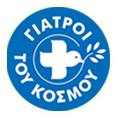

Europe failed in Lesvos
Médecins du Monde – Greece, loyal to their values, remained at the forefront throughout Monday’s riots in the Reception and Authentication Centre in Moria – Lesvos, providing medical assistance to refugees and migrants. The DotW Greece team made sure that unaccompanied minors of the camp were safely transferred to another location. In parallel, after the final evacuation of the camp, a mobile unit of DotW Greece stayed until late at night at its entrance, taking care of persons who had been wounded and helping all those in need. On Tuesday, they returned in the organization’s medical clinic of the camp in order to provide full medical and psychosocial support to refugees in need.
Monday’s events in the Reception and Authentication Centre in Moria – Lesvos show the failure of the European policy that has been conducted so far to address the refugee crisis.
The case of this Reception and Authentication Centre is characteristic, as it is the first fully operational “hotspot” of Greece, the largest center in terms of size and capacity on an island, and it is still today the entry point for 50-60% of the total refugee arrivals in Greece.
When the Center was created three years ago, it had been conceived with the idea that its population would be moving, and that it should provide reception and hosting up to the completion of registration procedures.
But this first purpose has been reversed since the EU-Turkey agreement of March 20th, 2016. All newcomers are now subjected to a limitation of their freedom, first in the Reception and Authentication Centre in Moria for a maximum of 25 days, and then on the island of Lesvos until the completion of the procedures.
Moreover, from July 2016 and on, and particularly after the attempted coup in Turkey, an increasing trend is observed in terms of refugee and migrant arrivals, resulting inflows of Third Country Nationals (TCN) to be more important than outflows. Therefore, a significant number of new arrivals is added to the local refugee population that has already been living in the camps of the island for a long time.
The extended stay of thousands of people in a structure originally built for half of those hosted, the exclusion from the relocation schemes in other EU states for people arriving in Greece after March 20th, long delays in the asylum procedures as well as the extremely poor information concerning what will happen next has led the refugee/migrant population in a situation with no solution and has created confusion among the local community.
At the same time, one year after the adoption of the so-called “relocation program” by the European Council, only a small percentage – less than 3% – of the total number of refugees and migrants has moved from Greece and Italy to other EU states. According to the most recent data, only 2.986 asylum seekers have been relocated from Greece to other European countries, whereas the EU Member States seem reluctant to receive refugees from Greece and Italy. Of the total number of 66.400 pledges that were agreed, only 11.866 have been made available so far[1].
It is obvious that the European approach to tackle the refugee crisis in Europe up to now has failed. Therefore, new innovative and realistic initiatives are necessary.
Médecins du Monde – Greece invite the European Union to review the policies followed so far, in order to ensure legal and safe routes of access for refugees in Europe, especially for women and children who are now a majority among the moving populations. These new policies should be determined according to the vulnerability and special needs of refugees, and not upon criteria such as nationality or date of arrival in Europe – before or after March 20th. Moreover, we call on the Greek authorities to immediately implement initiatives that will allow to “release pressure” from the islands, by transferring refugee populations in special reception centers on mainland Greece. Finally, we ask Greek authorities to accelerate registration and examination of applications for asylum procedures.
* * *
About Doctors of the World Greece
Médecins du Monde-Doctors of the World Greece was founded in 1990 and is part of the International network of MdM that consists of 15 Chapters in the world (Argentina, Belgium, Canada, France, Germany, Greece, Japan, Luxemburg, Netherlands Portugal, Spain, Sweden, Switzerland, United Kingdom and U.S.A.). It remains, though, a Greek organization, taking its own path based on circumstances particular to Greece, while maintaining financial and administrative independence and transparency shared with the network.
Completing 26 consecutive years of action in 2016, MdM-Greece has been acknowledged as a credible and efficient organization that fosters the sense of solidarity within the Greek Community.
Having conducted numerous humanitarian aid programs in Greece and in developing countries, Greek doctors, administration, medical staff and technical experts continue to offer their voluntary services.
MdM-Greece with more than 600 volunteers since its foundation, in around 50 countries around the world, contributes to medical and humanitarian aid programs. Throughout the years, medical and humanitarian aid programs have been carried out in Iraq, Lebanon, Afghanistan, Sri Lanka, Indonesia, Serbia, Sudan, Palestine, Haiti, Gaza, Uganda, Tanzania, Algeria etc.
Doctors of the World Greece work with other international Non Governmental Organizations in order to more efficiently provide humanitarian aid to people in need.
* * *
[1] UNHCR data, up to the September 11th 2016 – http://data.unhcr.org/mediterranean/regional.php
